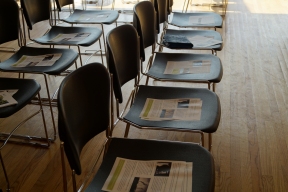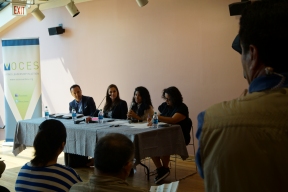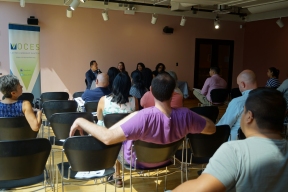
On Tuesday, Voces Verdes hosted a panel entitled The impact of climate change on the Latino community that convened a group of subject matter experts, community leaders, and elected officials to discuss the impact of climate change on the lives of Latino Chicagoans. The American Lung Association’s State of the Air report ranked the greater Chicago area 19th among 220 metropolitan areas for most high ozone days. Increased ozone in the environment can cause difficulty breathing, lower birth weight, and aggravated asthma, a condition affecting Hispanics disproportionately.

“Smokestacks and coal dust shouldn’t be part of the backdrop to a kid’s backyard, but that was the reality for many children, especially Latino kids, some years ago in southwest Chicago,” said panel moderator Kim Wasserman, Director of Organizing and Strategy of the Little Village Environmental Justice Organization. “Shutting down two of the oldest and dirtiest coal plants in America was a win for the Latino community, a win for Chicago and a win for the climate change movement. However, there is still so much work to be done throughout the country to ensure that all communities have access to such a basic right as clean air and green areas.”

The panel also discussed President Obama’s recent announcement of the Environmental Protection Agency’s Clean Power Plan, which will place limits on carbon pollution from power plants for the first time in history. The plan aims to reduce the amount of carbon pollution in the air 32 percent by 2030. “As Chairman for the Committee on Health and Environmental Protection and the Chicago Latino Caucus, everyday I see the real connection between the state of Latino health and environmental issues that impact Chicago,” said Alderman George Cárdenas of Chicago’s 12th Ward. “The Clean Power Plan is a step forward toward improving the quality of life and health of our most vulnerable populations, including Chicago’s Latino community.”












